Literally! See, there’s localisation, and then, there’s localisation.
Earlier this year, the anime feature Detective Conan: Sunflowers of Inferno hit Japanese movie theatres. The movie centres around a Van Gogh painting that was believed to have been destroyed during a US bombing raid during the Second World War. (You can read the full plot here.)
The movie was released in South Korea this past summer, and it was changed considerably. The biggest change was, basically, erasing almost all references to Japan, including it as the movie’s setting.
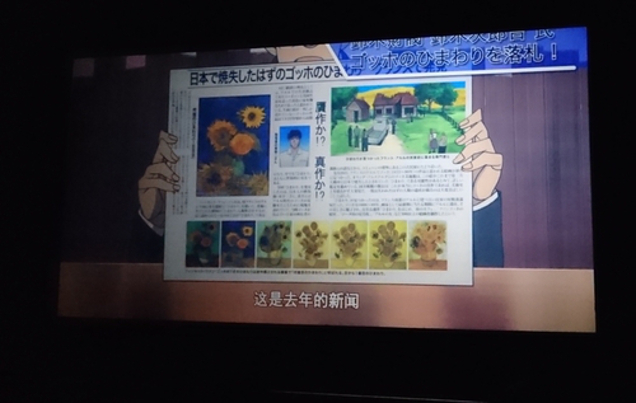
[Image via NariNari]
This is a Japanese language newspaper.
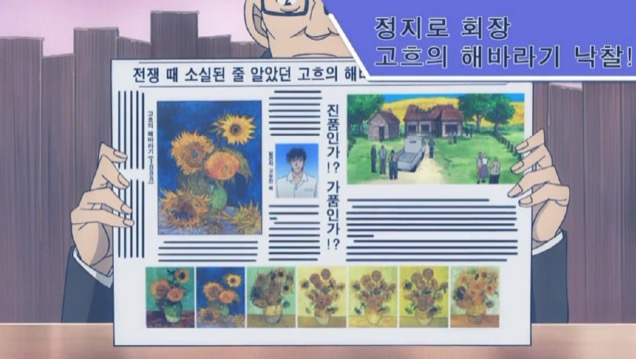
[Image via GamerSky]
Which, as GamerSky shows, became a Korean language newspaper.
As Focus Asia (via ANN) noted, Japanese money became Korean money.
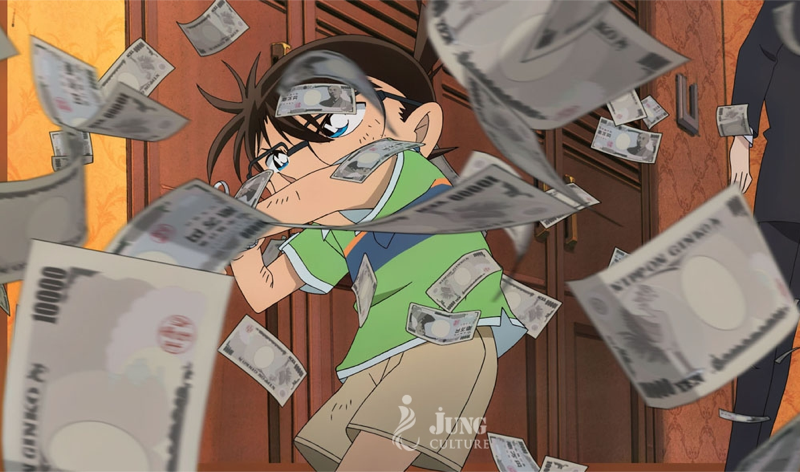
[Image via Jung Culture]
This is Japanese yen.
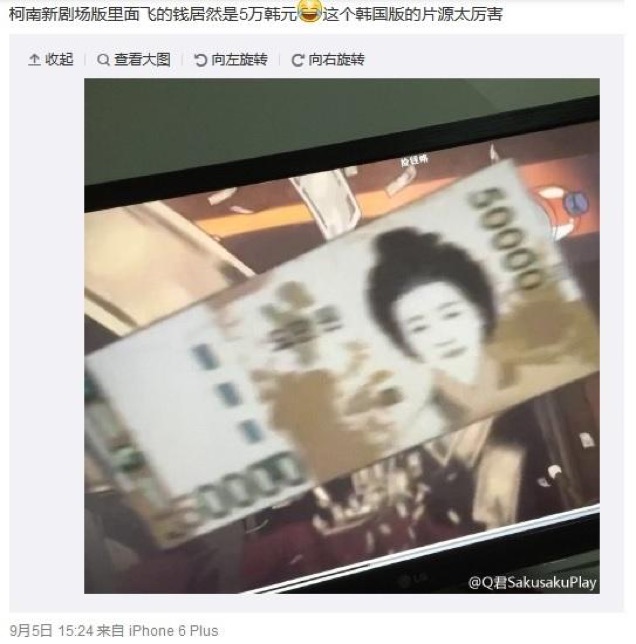
[Image Focus Asia]
This is not.
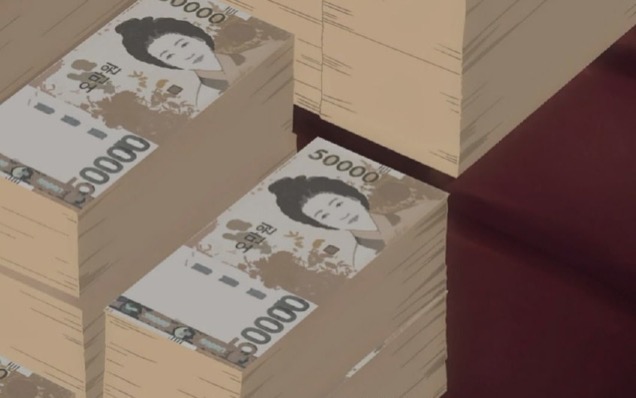
[Image via GamerSky]
It’s Korean won.
[GIF via Animen]
As you can see, this is actually kind of amazing, because it’s so complex.
But these weren’t the only changes. Landmark Japanese locations, like Haneda Airport, became Korean locations, such as Inchon Airport.
Shinjuku’s famous Kabukicho sign in Tokyo was changed, too.

[Photo: Sean Pavone / Shutterstock]
Here is the actual sign.
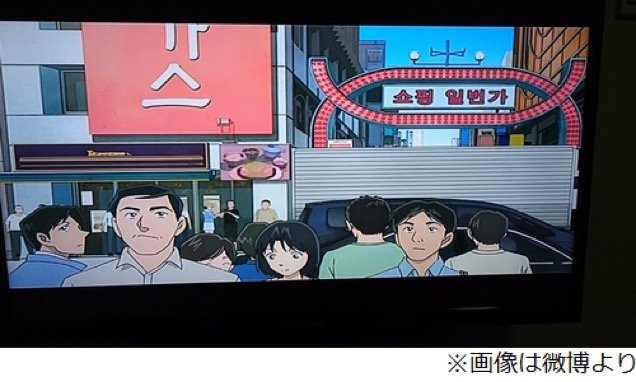
[Image via NariNari]
But…this is a famous Tokyo landmark…now in South Korea.
When Japan was shown on a map, it was actually listed as “South Korea.” This was all done to thoroughly localise the setting as Korea.
The most egregious change of all, though, has to be this:
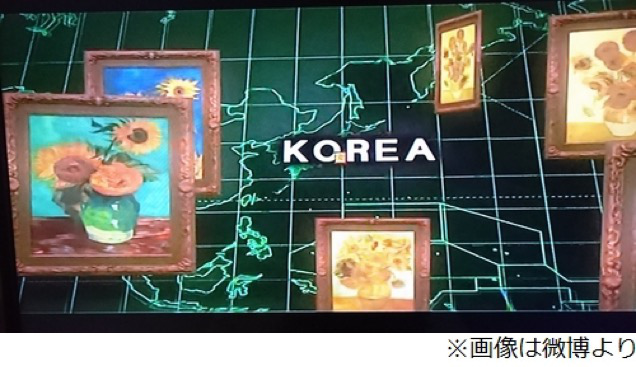
[Image via NariNari]
Japan is actually covered with the word “Korea.”
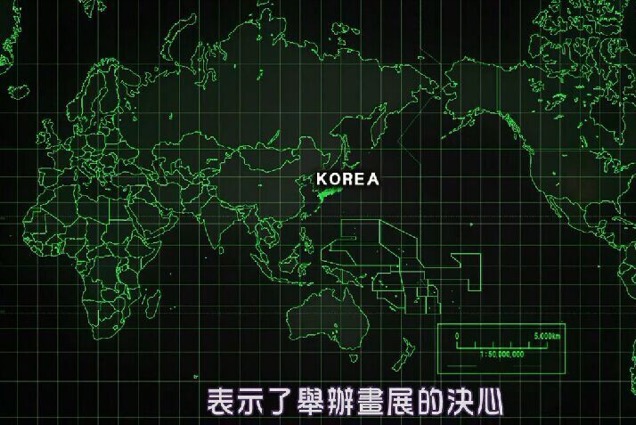
[Image via GamerSky]
I guess the movie’s makers did a calculation and thought these changes were necessary for the Conan movie to be successful in South Korea. More recently, similar calculations were done when Doraemon was shown in the U.S. Characters are seen holding dollars and not yen. But here, some of the changes seem overdone and can take you out of the movie.
You might think, well, these changes were done because of the tensions between South Korea and Japan. South Korea isn’t alone in this regard, because relations between China and Japan haven’t been so great, either.
Last week, Detective Conan: Sunflowers of Inferno opened in mainland China. So, you’d think the movie would get edited for China like it did for South Korea. You’d think. But, according to website NariNari, it was not altered.
For the Chinese version, only the language was changed for the dub and the subtitled versions. The rest of the movie, including Japanese setting, Japanese language, and Japanese money were left as is.
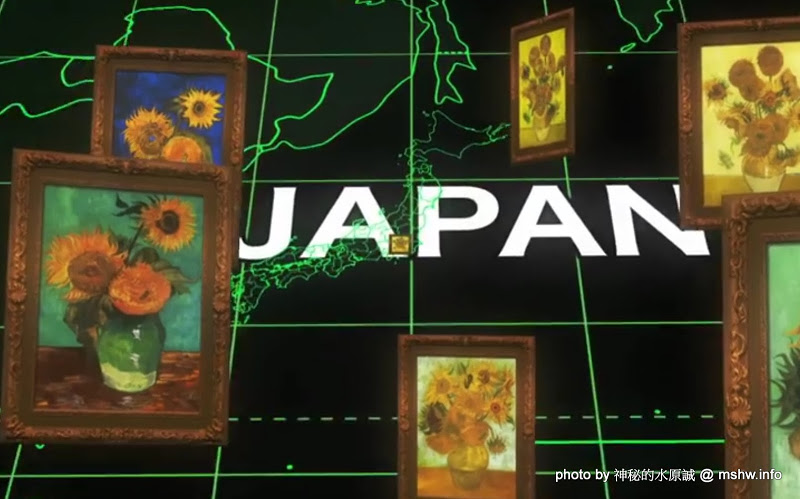
[Image: Salad Blog]
The same was also true when the movie was released in Taiwan earlier this year. The above image which shows “Japan” on the map is apparently from the Taiwanese release.
According to NariNari, people online in China were relieved that the Conan movie wasn’t over localised to the point of distraction. As seen on Focus Asia (via ANN), people online in China felt that changes like these fundamentally altered the work. Don’t you agree?
Top photo: Conan

Comments
11 responses to “Conan Anime Erases Japan For South Korea”
This happens a lot. Crayon Shin Chan and Card Captor Sakura (Janggu and Card Captor Cherry) are some examples that come to mind.
Yet I bet neither of them ever went to the level of literally calling the Japanese Islands Korea.
I detest hypocrisy like this. You want to keep a stupid grudge against a nation, generations after their misdeeds, well you are a sad people, but sure, go crazy. But at least have the decency and dignity not to embrace and profit from their products and much less pretend they are yours.
Decency and dignity are interesting words.
You don’t seem to understand who made the changes.
These weren’t just little misdeeds. They are also rewriting the history books and do not acknowledge the awful crimes they committed. I know you must be crazy about anime and love many things about Japan, but at least read up on some facts. I suggest you look at this: http://www.soompi.com/2015/09/05/haha-and-yoo-jae-suk-make-touching-visit-to-village-of-displaced-korean-nationals-in-japan/
Japan’s denial and arrogance is still affecting lives.
I am very well aware of both the impact of the misdeeds back then and today. Interestingly you failed to mention S. Korea’s part in festering today’s hatred to the point of racism, intently crapping on the few times when Japan has tried extending the olive branch.
I’m not justifying or diminishing Japan’s acts, but the road to peace is bilateral. That woman in the link you posted? She has the right attitude even having been one of the direct victims. Most of the people in S. Korea spouting hatred against Japan are disenfranchised youths that need something to hate to unify them. There are many like them in each country and without a fault, they always hate on someone from a different ethnicity, nationality, religion or what have you.
But… that’s kind of unavoidable, right? Even understandable. That’s why my beef is with the people that will hold those beliefs, yet cynically will still attempt to profit from what they hate by censoring or [X]-washing it.That speaks to me of a hatred that is not even truly righteous outrage but simply skin-deep, baseless pop-hate.
This is true, you can’t walk 10 metres in Seoul without some old racist spitting at your feet.
The reason that China would not bother editing is that the movie people there actually realise that the sorts of people that boycott Japanese products on principle wouldn’t be fooled (or even pacified for that matter) by editing like this.
That can’t be healthy, socially/psychologically.
You mean the maintenance of collectivist hostility towards a neighbouring country based on internalised response to this national ideal of victimisation spanning…..a long period of time? (and not unjust). Probably not. They also share a land mass with another major issue that must cause a lot of pain.
So…..in my mind (and the jerkoff comment above annoys me tbh)…..if the people accept a film with those changes….then okay. I do wonder how necessary they are.
I hope that things change because I agree, however sitting here and defining something as unhealthy and judging (comment above, I fucking ‘detest’ you)….it’s borne from a condition of need and response.
Eat your hamburgers, Apollo.
http://www.awkwardzombie.com/index.php?comic=120913
Any evidence that Japan did extend the olive branch? I must have missed when they openly acknowledged their war crimes and apologised for them.
If someone murdered my friends grandfather then said “hey buddy just be cool. Lets be friends. Don’t worry about it. Time to move on. Don’t hold a grudge.” I’d be more pissed, not less pissed.
Japan is just as racist as Korea. They openly have no foreigner signs in their shops and bars.